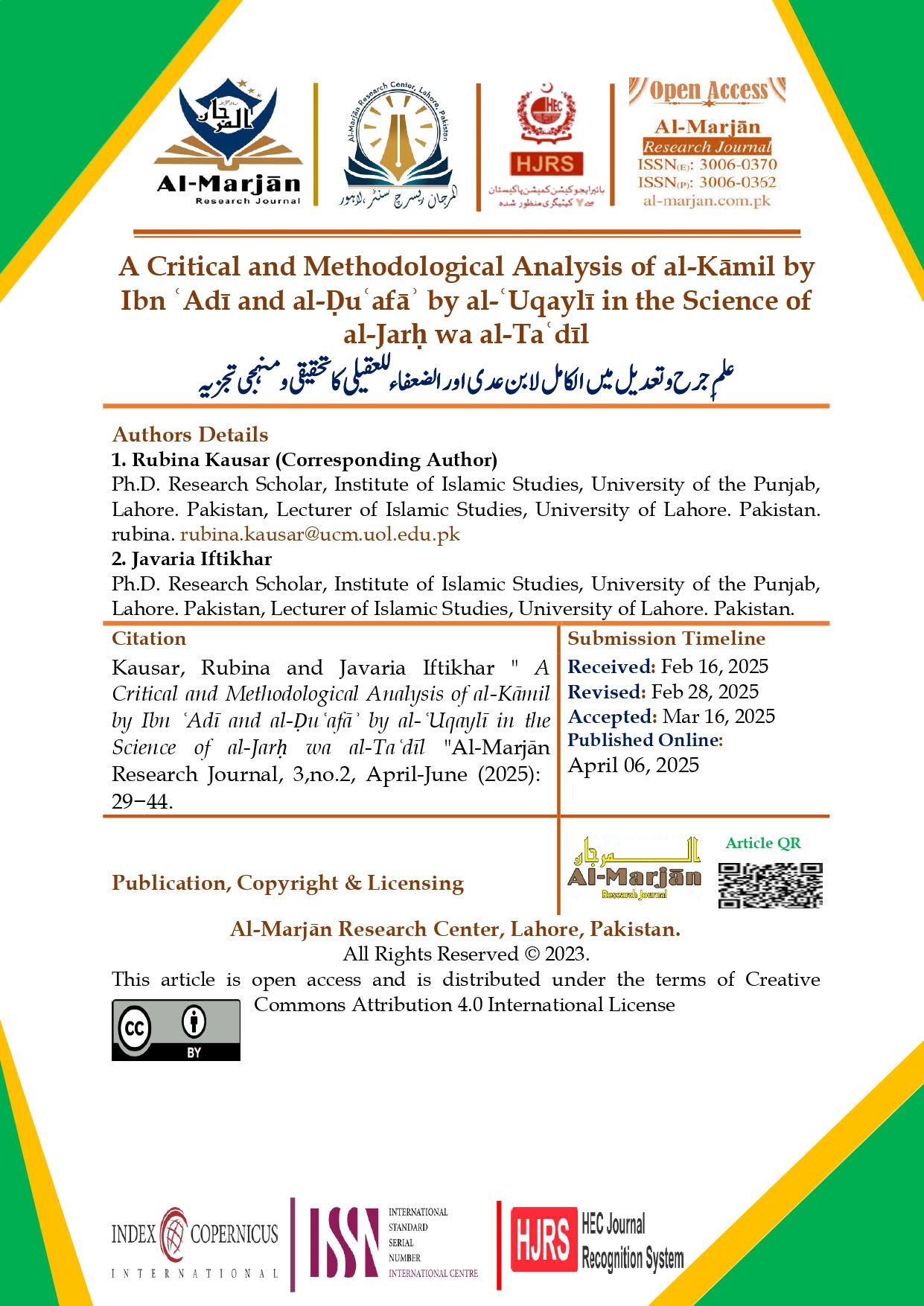A Critical and Methodological Analysis of al-Kāmil by Ibn ʿAdī and al-Ḍuʿafāʾ by al-ʿUqaylī in the Science of al-Jarḥ wa al-Taʿdīl
علم ِ جرح و تعدیل میں الکامل لابن عدی اور الضعفاء للعقیلی کا تحقیقی و منہجی تجزیہ
DOI:
https://doi.org/10.1234/90abyt26Keywords:
Ibn ʿAdī, al-ʿUqaylī, al-Jarḥ wa al-Taʿdīl, ḥadīth criticism, weak narratorsAbstract
This study presents a critical and methodological analysis of two foundational sources in the Islamic science of al-Jarḥ wa al-Taʿdīl (the evaluation of ḥadīth transmitters): al-Kāmil fī al-Ḍuʿafāʾ al-Rijāl by al-Ḥāfiẓ Ibn ʿAdī al-Jurjānī and al-Ḍuʿafāʾ by al-ʿUqaylī. The research begins by introducing the life and scholarly background of Ibn ʿAdī, who was born in 277 AH (890 CE) in Jurjān and became a distinguished ḥadīth expert. Renowned for his extensive travels and collection of ḥadīth, Ibn ʿAdī compiled a detailed biographical encyclopedia assessing the reliability of transmitters, reflecting his scholarly rigor. His work, al-Kāmil, is a cornerstone in the field of biographical evaluation (ʿilm al-rijāl), where he documents and critiques transmitters who were considered weak or controversial. Similarly, al-ʿUqaylī’s al-Ḍuʿafāʾ is an influential source in which he assesses weak narrators through careful textual analysis and comparative critique.This research evaluates both authors’ methodologies in selecting, analyzing, and classifying narrators, and highlights their respective contributions to the development of the discipline. It underscores the precision, critical insight, and scholarly independence with which these early scholars approached the authentication of ḥadīth. Moreover, the study explores the historical context, structure, and scholarly reception of each book, offering a comprehensive understanding of their lasting impact on ḥadīth sciences.






































